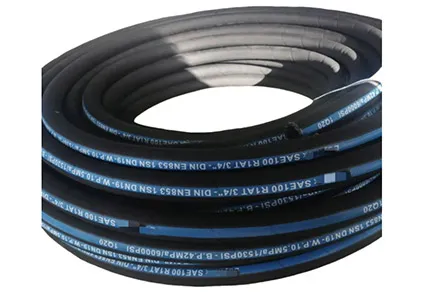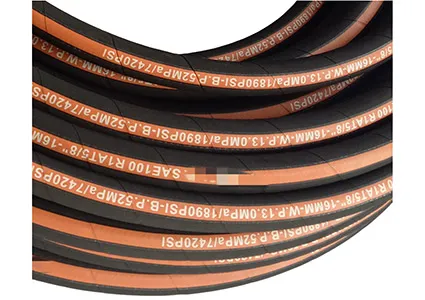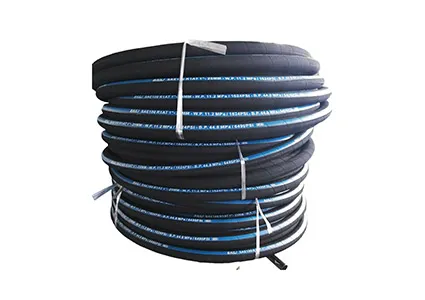Medium pressure hydraulic lines. Meets or exceeds the requirements of SAE 100R1 Type AT and performance requirements of DIN20022 1 SN /EN853 1SN.
Crafted with a robust wire braid reinforcement, our Wire Braided Hose offers exceptional strength and flexibility, ensuring it can withstand high pressures and extreme temperatures. The unique construction not only enhances its durability but also provides excellent resistance to abrasion, making it ideal for environments where wear and tear are a concern. Whether you’re working with hydraulic fluids, oils, or water, this hose guarantees reliable performance and longevity.
Structure
-
Inner tube
choksiz yog'ga chidamli sintetik kauchuk
-
Kuchaytirish
1 high tensile steel wire braid
-
Outer tube
qora, yog ', ob-havo va aşınmaya bardoshli sintetik kauchuk
-
Xavfsizlik omili
4: 1
-
Harorat oralig'i
-40℃(-40°F)+100℃(+212°F)
-
Intermittent service
+120℃(+248°F)
-
Max.temperature recommended for water base hydraulic fluids
+70℃(+158°F)
-
Max.temperature recommended for air
+60℃(+140°F)
Product features
-
The hose is made of special synthetic rubber and has excellent oil resistance, heat resistance and aging resistance.
-
The hose has high pressure bearing capacity and excellent performance in the pulse.
-
The hose body is tightly combined, soft to use, and has little deformation under pressure
-
The hose has excellent resistance to winding and fatigue resistance
Limitations
-
Not for High-Pressure Systems
The single braid design limits its use to low/medium pressures. For higher pressures, hoses like R2 (double braid) or 4SP/4SH (spiral wire) are recommended.
-
Temperature Sensitivity
Avoid prolonged exposure to temperatures above 100°C (212°F).
Comparison to Similar Hoses
-
R1 vs. R2
R2 (SAE 100R2) has two steel wire braids and handles higher pressures (up to ~250 bar/3,600 psi).
R1 is lighter and more cost-effective for low-pressure uses.
-
R1 vs. 4SH
4SH hoses use spiral wire reinforcement and are designed for very high pressures (up to ~400 bar/5,800 psi).
A hydraulic hose is a crucial component in hydraulic systems, designed to transport hydraulic fluid between various parts of machinery and equipment. These hoses are engineered to withstand high pressure and are essential for the efficient operation of hydraulic systems found in industries such as construction, manufacturing, and automotive.
Hydraulic hoses are typically made from a combination of synthetic rubber, thermoplastic, or metal, and are reinforced with layers of textile or steel wire to enhance their strength and durability. This construction allows them to handle the extreme pressures that hydraulic systems often generate, which can exceed several thousand psi (pounds per square inch).
The primary function of a hydraulic hose is to convey hydraulic fluid from one component to another, such as from a pump to a cylinder or from a valve to an actuator. This fluid transfer is vital for the operation of hydraulic machinery, enabling it to perform tasks such as lifting, pushing, or pulling heavy loads with precision and control.
Hydraulic hoses come in various sizes and specifications, tailored to meet the specific requirements of different applications. They are categorized based on their pressure ratings, temperature resistance, and compatibility with various hydraulic fluids. Proper selection and maintenance of hydraulic hoses are critical to ensure safety and efficiency in hydraulic systems.
The main features of hydraulic hoses include
-
High pressure resistance
Able to withstand high working pressure to ensure stable operation of the system.
-
Oil resistance
Good tolerance to hydraulic oil and other media to prevent corrosion and aging.
-
Temperature resistance
Adapt to a wide temperature range and maintain stable performance.
-
Flexibility
Easy to install and bend, adapt to complex layout.
-
Wear resistance
Resist external wear and extend service life.
-
Anti-aging
Not easy to age in harsh environments, maintain long-term performance.
-
Sealing
Effectively prevent medium leakage and ensure system safety.
-
Lightweight
Lightweight, easy to carry and install.
-
Diversification
There are a variety of specifications and models to meet different needs.
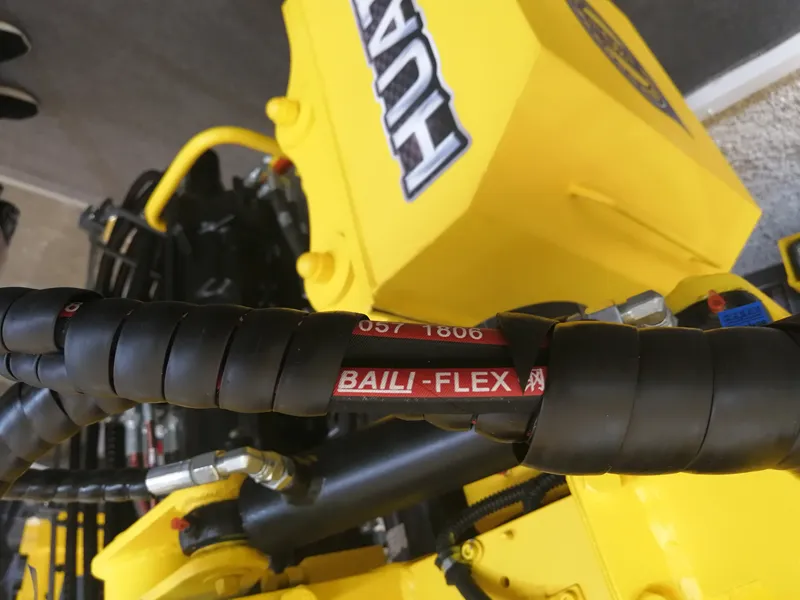
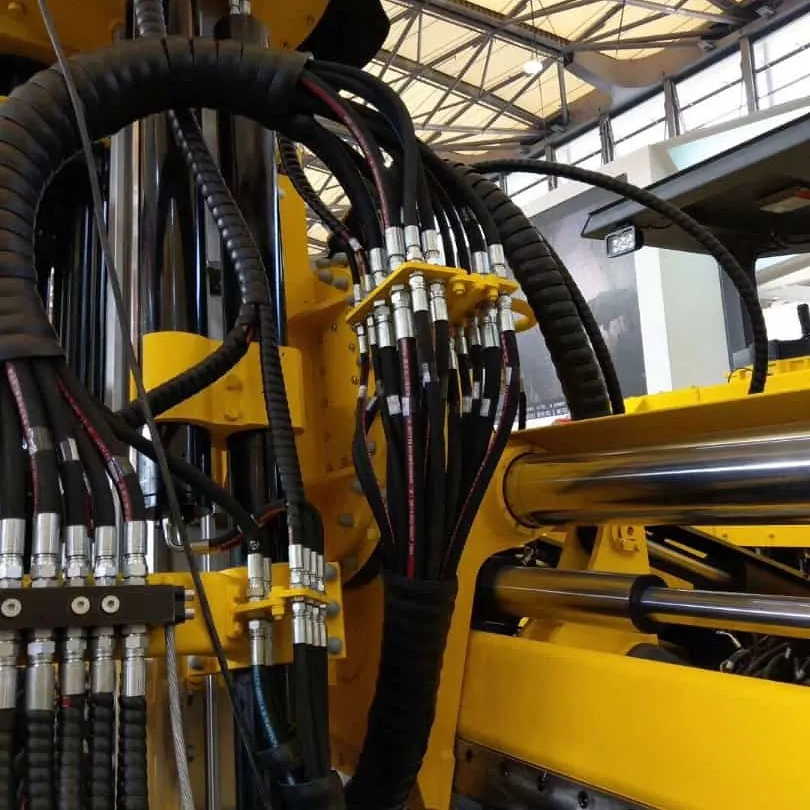
These characteristics make hydraulic hoses widely used in engineering machinery, agricultural equipment and industrial hydraulic systems.
Hydraulic hoses are widely used in many fields, mainly used to transmit liquid media (such as hydraulic oil, water, emulsion, etc.) and transmit pressure and power. The following are its main uses:
-
Construction machinery
Used in hydraulic systems of equipment such as excavators, loaders, bulldozers, etc. to transmit power and control actions.
-
Agricultural machinery
Used in hydraulic systems of equipment such as tractors and harvesters to control mechanical operations.
-
Industrial equipment
Used in hydraulic systems of equipment such as machine tools, injection molding machines, and die-casting machines to transmit power and control.
-
Automotive industry
Used in automobile brake systems, power steering systems, etc. to transmit hydraulic oil or gas.
-
Mining machinery
Used in equipment such as hydraulic supports and rock drills to withstand high pressure and harsh environments.
-
Ship and marine engineering
Used in ship hydraulic systems and offshore platform equipment, with corrosion resistance and seawater resistance.
-
Aerokosmik
Used in aircraft landing gear, hydraulic control systems, etc., requiring high pressure resistance and temperature resistance.
-
Construction machinery
Used in the hydraulic systems of equipment such as concrete pump trucks and tower cranes to transmit power..
-
Petrochemical
Used in oilfield equipment and chemical machinery to transmit oil or chemical media, with corrosion resistance.
-
Other fields
Used in hydraulic tools, fire fighting equipment, hydraulic lifting platforms, etc.
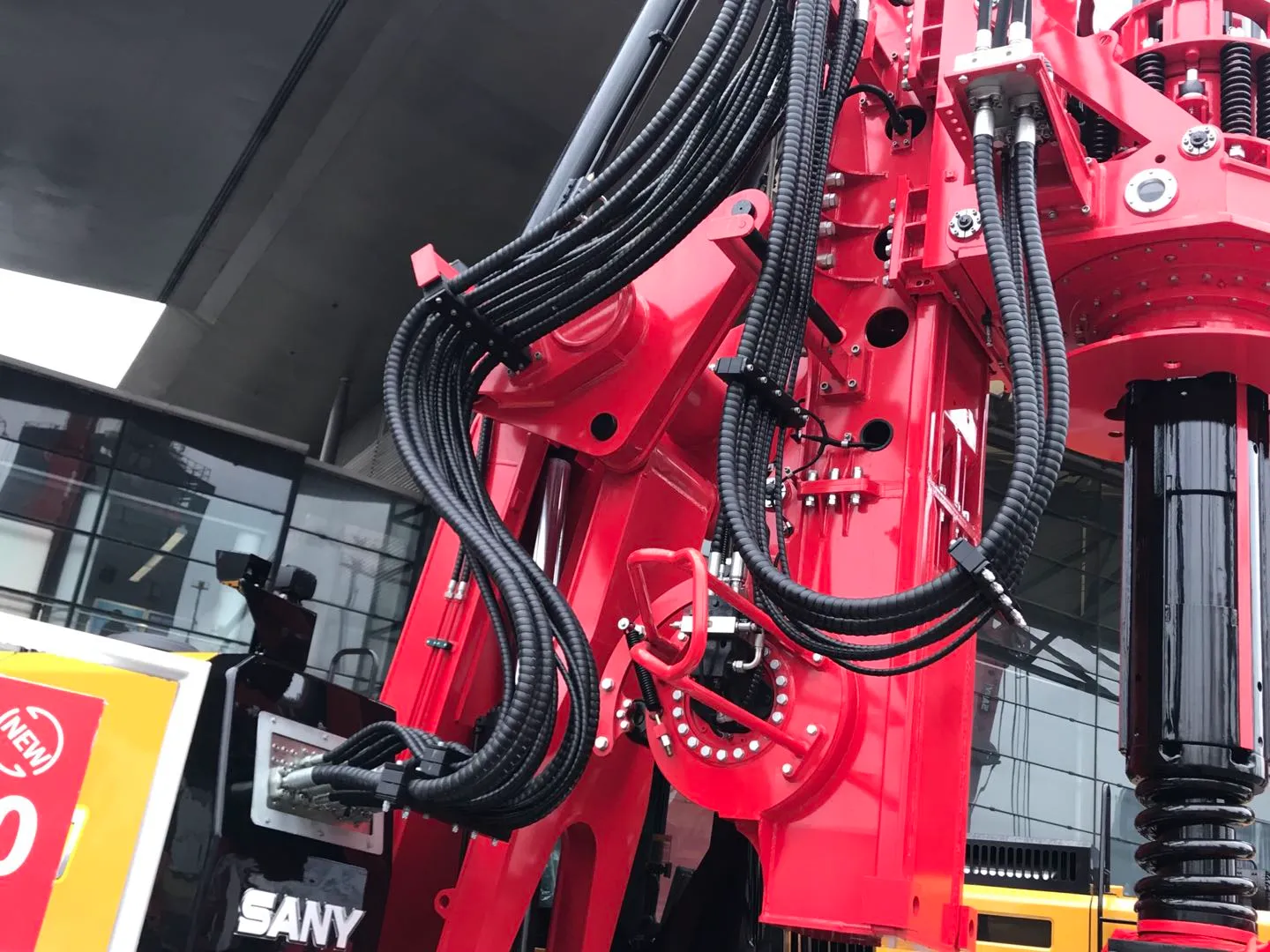

-
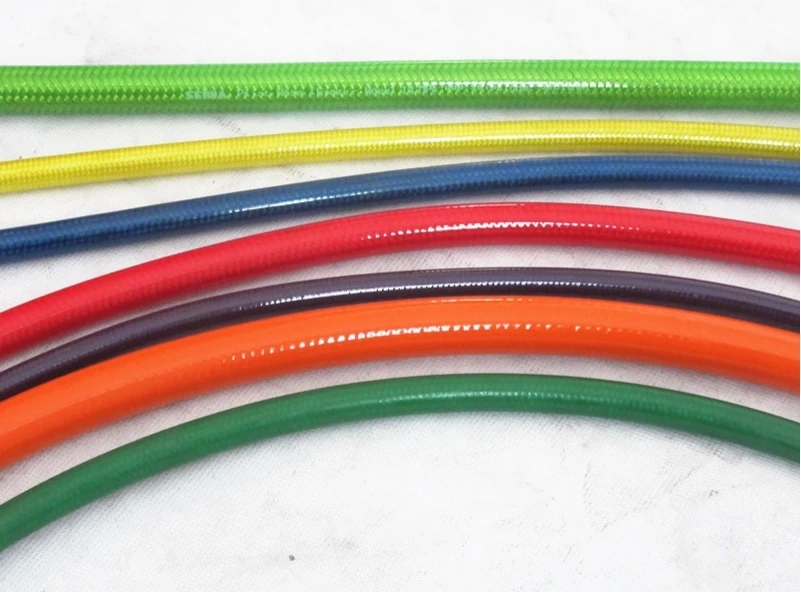 Thermoplastic Hose Chemical Resistance Fluid Compatibility2024-03-12Thermoplastic Hose Chemical Resistance Fluid Compatibility
Thermoplastic Hose Chemical Resistance Fluid Compatibility2024-03-12Thermoplastic Hose Chemical Resistance Fluid Compatibility -
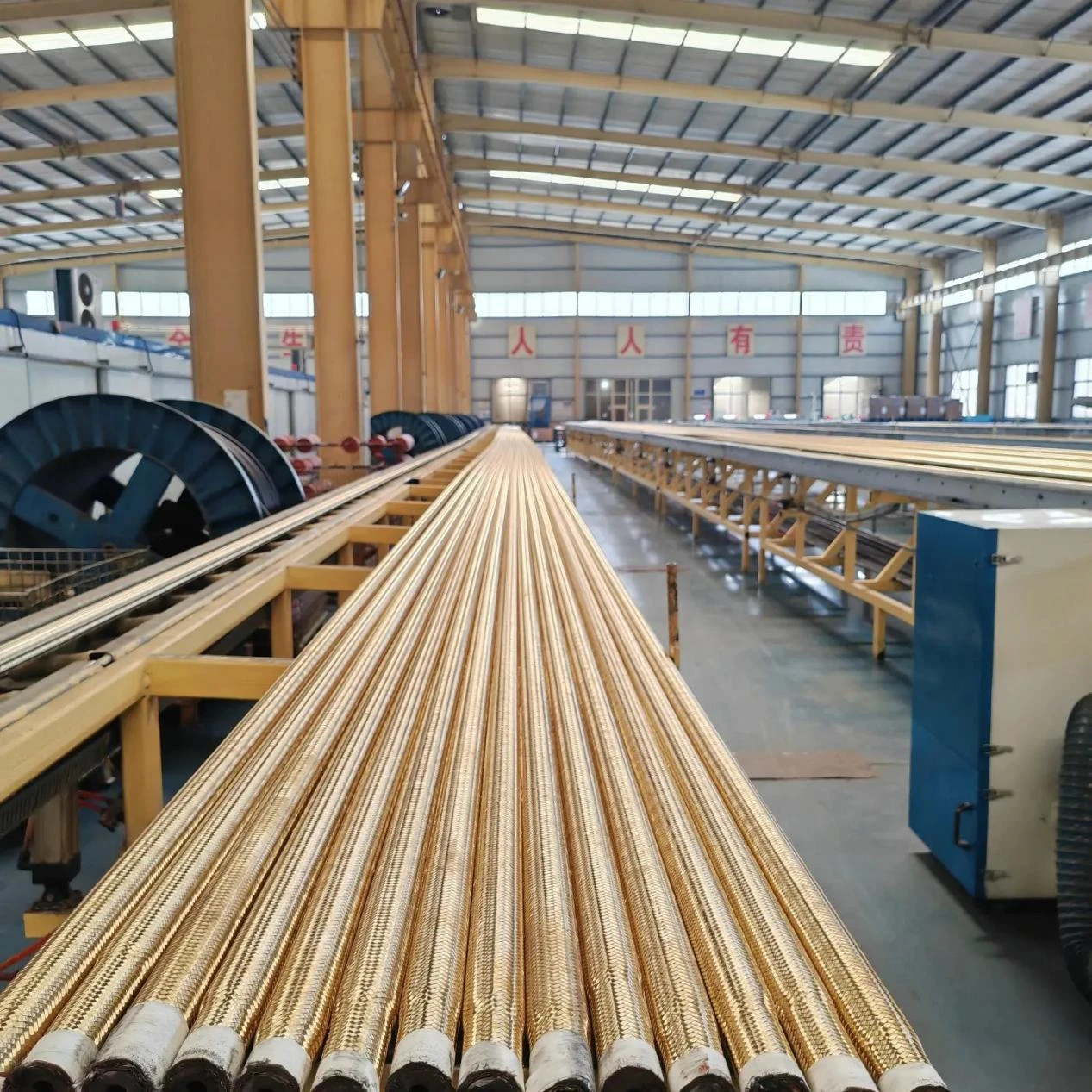 Steel Wire Braid Hydraulic Hose Factory Production Process2024-03-12Steel Wire Braid Hydraulic Hose Factory Production Process
Steel Wire Braid Hydraulic Hose Factory Production Process2024-03-12Steel Wire Braid Hydraulic Hose Factory Production Process -
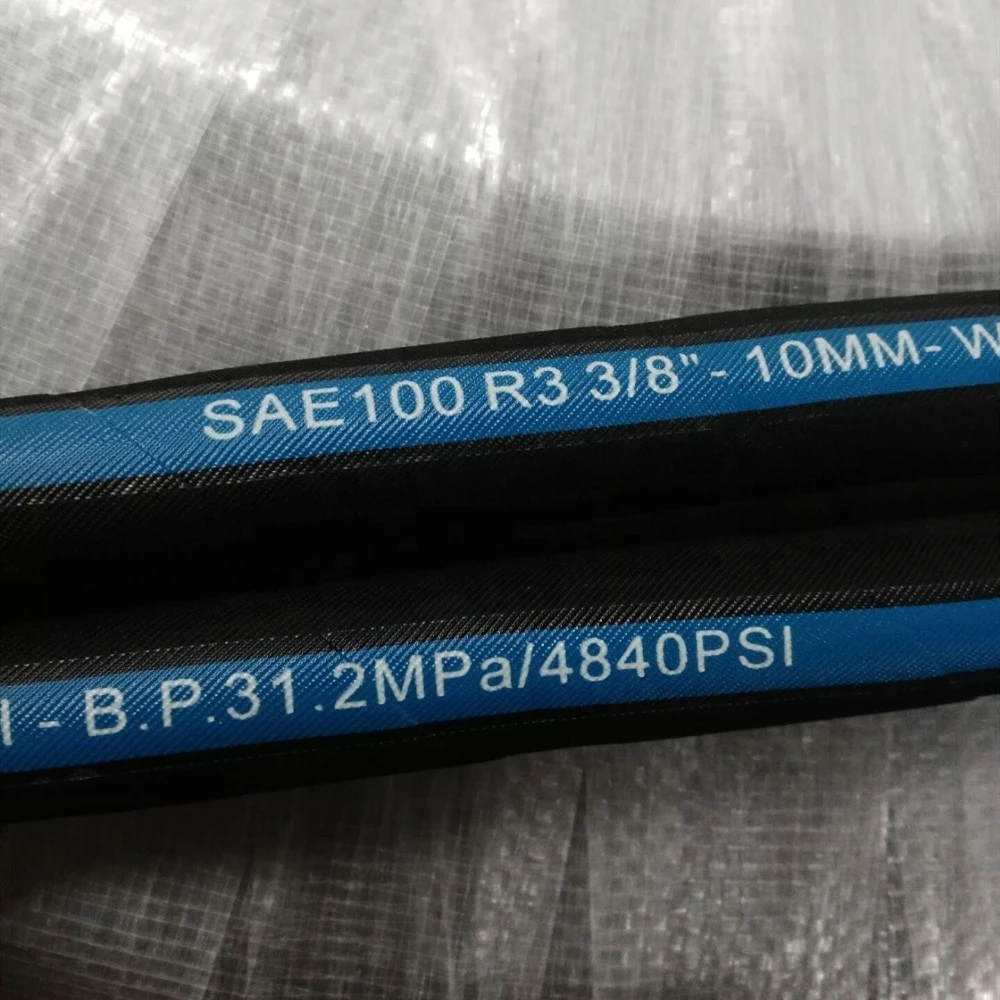 SAE Hydraulic Hose Specs Textile Reinforcement Layer Structure2024-03-12SAE Hydraulic Hose Specs Textile Reinforcement Layer Structure
SAE Hydraulic Hose Specs Textile Reinforcement Layer Structure2024-03-12SAE Hydraulic Hose Specs Textile Reinforcement Layer Structure

